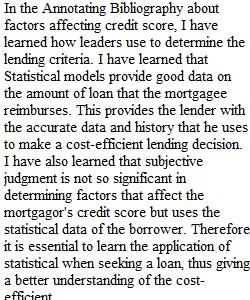


Q DIRECTIONS: Reflect upon what you've learned about your research skills as you've worked through the material for our second writing project unit. Be sure to give examples and to assess/analyze the examples that you give in order to demonstrate the skill of metacognition (i.e. thinking about your thinking). Your reflection should meet the following minimum criteria: • o ? ? 500-750+ words ? Be composed in multiple paragraphs (at least 3 paragraphs) ? Use proper grammar, punctuation, and capitalization Your reflection must answer the following questions: 1. 1. 1. 1. What are the strengths of your bibliography? (What did you learn about your project/topic in the process of researching and writing your summary, assessment, and reflection for your sources? What did you learn about how to research and document sources?) 2. What are the weaknesses in your bibliography final draft? (What would (or should) you change or revise?) 3. What are your major takeaways from this project unit? (How has this project unit improved your critical thinking? What have you learned about yourself and/or your research practices through this project unit? How has this project unit improved your research skills?) Give examples and explain. Things to consider as you write: Your writing here will be graded based on your ability to demonstrate clarity, relevance, analysis, interconnections, and self-criticism in your reflection. (Please see the attached rubric for more detailed clarification.) • CLARITY: be sure to make clear what aspects of yourself and your writing/thinking skills you are assessing, and why you are choosing to assess these particular skills. • RELEVANCE: be sure that your reflection answers the assigned questions and that the examples you provide are relevant to the questions being asked. • ANALYSIS: be sure that your analysis moves beyond summary and that your "thinking about your thinking" demonstrates an awareness of how your understanding of self, others, and/or course concepts have progressed, regressed, or plateaued during this project unit. • INTERCONNECTIONS: be sure to make connections in your reflection; your self-assessment should connect experiences and/or material from other courses, life experiences, or personal goals to the material we have covered during this project unit. What are these connections and why do they matter to you? • SELF-CRITICISM: be sure to reflect upon your own biases, stereotypes, preconceptions, and/or assumptions that you have become aware of during the course of this unit. Now that you recognize these aspects of your intellectual development, how will you begin to "work" on these elements of yourself? Minimum required word count: 500 words Please be sure to include word count in parenthesis at the end of your post; for example: (682 words). If you misrepresent your word count, you may earn half credit at best--and likely no credit. Be honest in your word count. PreviousNext
View Related Questions